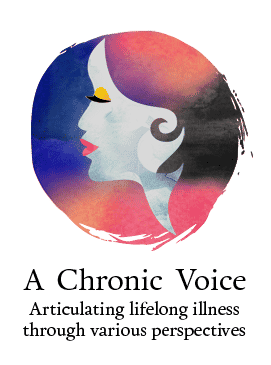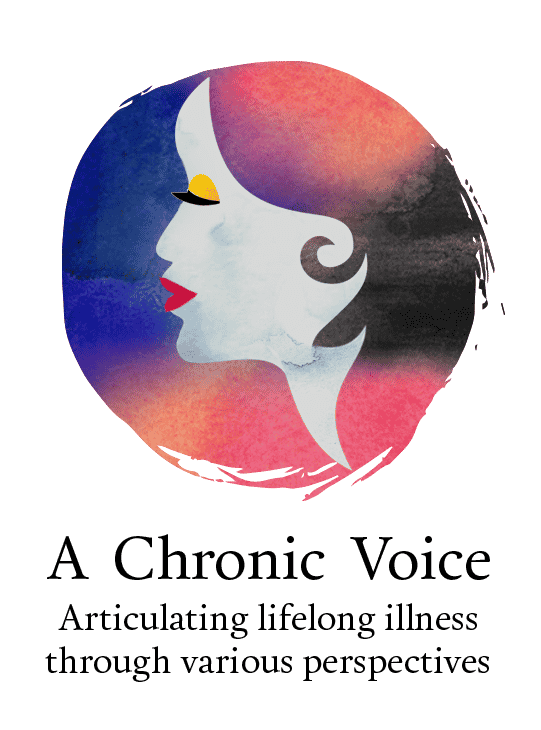Dysphagia is a common problem for many people who live with chronic illness, cancer or a disability for a wide variety of reasons.
In this post we will learn a bit about the swallowing process, and how things can go wrong along the way.
We will also see how oral vitamin sprays may be a potential source of supplementation. This may be especially useful for patients who are suffering from malnutrition.
*Note: Whilst this post is sponsored by Spectra Spray, all opinions expressed are my own. Please note that I am not a medical professional, but have done meticulous research from credible sources for this article. Nothing should be taken as medical advice. Always be sure to check with your doctor before you start on any new treatment or protocol. This post might contain affiliate links. It will cost you nothing to click on them. I will get a small referral fee from purchases you make, which helps to keep this blog running (approx. $100/month). Thank you!
Table of Contents
What is Dysphagia?
Dysphagia is the medical term for swallowing difficulties. This usually has to do with problems in the neural control or structures involved in the swallowing process. Causes are wide-ranging, and therefore so are the treatments administered.
The Stages & Complexity of Swallowing
To understand the debilitating impact of dysphagia, let’s first take a brief look at the swallowing process.
The ability to swallow is something we often take for granted. But did you know that 50 pairs of muscles and nerves are needed to coordinate this process?
The act of swallowing consists of three main stages. The first is known as the oral stage, and begins in the mouth. Chewing with saliva helps to soften and prepare the food for the next step.
The second stage is known as the pharyngeal phase. It begins when the tongue pushes the food or liquid to the back of the mouth.
This triggers a swallowing response to pass food or liquid from the mouth through the throat. The larynx closes and breathing stops. This is to ensure that the food or liquid does not enter the airway and lungs by accident.
The third stage is called the esophageal phase. It begins when food or liquid enters the esophagus, which is the tube that carries them to the stomach.
Pin to Your Health & Nutrition Boards:

What Causes Dysphagia & Who Gets It?
Dysphagia can affect all sorts of people, as it is a symptom of an underlying problem. It does occur most frequently in the elderly however. As we age our muscles weaken, including those involved in the swallowing process.
A few other medical conditions that can cause dysphagia are:
-
- Acid Reflux & GERD.
Acid or gastroesophageal reflux causes contents in the stomach to flow back up to the esophagus. Common signs are heartburn, stomach pain and burping.GERD (Gastroesophageal Reflux Disease) is the more severe form. Patients suffer from frequent heartburns, and may also regurgitate food or sour liquid, cough, wheeze and present other chest pains and problems. - Epiglottitis.
Epiglottitis is a bacterial infection of the epiglottis and surrounding tissues that causes them to become inflammed.The epiglottis is a tissue flap at the base of the tongue that shuts the entrance to the trachea (windpipe) and larynx (voice box) during swallowing.Epiglottitis is considered a medical emergency, as it can cause asphyxia and respiratory arrest.
- Goiter.
The thyroid is a gland found in the neck, and the term ‘goiter’ is used to describe any condition where it becomes enlarged.It is a fairly common condition, with approximately 5% of the population in the U.S. living with it. While tests are important to rule out cancer, patients are usually asymptomatic.When a goiter grows too large, the swelling becomes obvious and the pressure can lead to difficulty breathing, coughing and swallowing.
- Esophageal Cancer.
Cancerous growth in the lining of the esophagus can cause chest pains, coughing, and painful or difficulty swallowing.
- Acid Reflux & GERD.
-
- Infections.
Infections such as Tuberculosis and Esophageal Candidiasis / Thrush can cause pain or difficulty with swallowing.
- Infections.
- Cancer & Cancer Treatments.
Cancers and tumors can cause dysphagia, especially neck, mouth, esophagus and stomach cancer.Radiation therapy causes scarring and fibrosis which can build up over time. It can also cause strictures, where the swallowing passage becomes constricted. - Cerebral Palsy.
This is a group of disorders that affect movement and the ability to maintain balance. It is the most common motor disability in childhood, with about 1 in 345 children living with it.Children with Cerebral Palsy commonly have feeding disorders and dysphagia. They must be monitored closely for aspiration, dehydration and malnutrition. - Muscular Conditions.
Two muscular conditions associated with dysphagia are Scleroderma and Achalasia.Scleroderma is an autoimmune disorder where the body attacks healthy tissue. This can lead to stiffening of the throat and esophagus muscles.Achalasia is a condition where the muscles in the esophagus are unable to relax to allow the passing of food or liquid to the stomach. Symptoms include progressive dysphagia.
- Congenital and Developmental Conditions.
Some people are born with certain disorders that can increase the occurrence of dysphagia. Some of these disorders include: Cleft-lip and palate, and learning disabilities.
Pin to Your Dysphagia & Chronic Illness Boards:

Signs & Symptoms of Dysphagia
Some common symptoms of dysphagia include:
- Coughing or choking while or after eating
- Wet or gurgly noises while or after eating
- Shortness of breath while or after eating
- Inability or extra effort needed to swallow
- Drooling
- Sensation of food stuck in the throat
- Pocketing of food in the cheeks
Types of Dysphagia
Swallowing difficulty can be further broken down into oropharyngeal and esophageal dysphagia. The former consists of the first two stages of swallowing, and the latter the third.
Oropharyngeal Dysphagia
This is caused by disorders of the nerves and muscles in the throat, and are primarily nervous system disorders. These disorders weaken the muscles involved in swallowing, which can lead to choking or gagging.
Some disorders that can cause oropharyngeal dysphagia are: Multiple Sclerosis, Parkinson’s Disease, Post-Polio Syndrome and also nerve damage from radiation therapy.
Esophageal Dysphagia
This occurs when a person feels as if there is something stuck in their throat. A few common causes include:
- Spasms in the Lower Esophagus
- Tightness in the Lower Esophagus
- Narrowing or Scarring of the Esophagus
- Foreign Bodies Lodged in the Esophagus or Throat
- Swelling or narrowing of the esophagus from GERD or inflammation
When Does Dysphagia Become Dangerous?
Patients who suffer from dysphagia sometimes have a fear of eating or drinking due to the fear of choking, coughing and/or pain. This can lead to malnutrition and dehydration over time, which then leads to nutritional deficiencies and other health problems.
If you do eat or drink but cough or choke often, there is also an increased risk of developing aspiration pneumonia. This is a chest infection that can develop as a result of foreign objects, such as food being lodged in the windpipe or lungs.
Those with a weakened immune system, lung disorders such as COPD, the elderly or poor oral hygiene are at a higher risk.
How is Dysphagia Diagnosed?
Dysphagia is a symptom of an underlying problem and therefore, the root cause needs to be determined and treated in order for it to improve.
A team of medical specialists should be consulted for the diagnosis of dysphagia, based on other symptoms, occurrences, existing medical history and other factors.
Some medical specialists who are involved in the process include:
- An otolaryngologist, who specialises in head and neck disorders.
- A gastroenterologist, who treats problems of the digestive system.
- A neurologist, who treats problems of the brain, spinal cord and nervous system.
- A speech-language pathologist, who are experts in the study and treatment of people who have speech, language and/or swallowing difficulties.
There are also many medical tests that can be used to assess swallowing problems to lead to a proper diagnosis of dysphagia.
Some of these tests include:
- X-rays of the Chest and Neck Areas. This helps to determine if any foreign objects are stuck.
- Barium Swallow Test. This is a special x-ray test for the throat and esophagus, where you drink barium before it begins. The barium coats the inside of the esophagus, so that it shows up better on the x-ray. This can help in literally highlighting problematic areas.
- Fluoroscopy This test involves the swallowing of barium whilst videotaping the process.
- Esophagoscopy or Upper Gastrointestinal Endoscopy. These tests insert a small tube, known as a scope, down your throat. This helps with taking a closer look at the esophagus, stomach and upper intestines. Sometimes a biopsy is taken to check for inflammation or cancer cells.
- Manometry. This test inserts a small tube with a computer attached down the esophagus. The computer measures the pressure in the esophagus when swallowing.
- pH Monitoring. This test is designed to monitor how often acid from the stomach gets into the esophagus, and how long it stays there.
How is Dysphagia Treated?
Treatment of dysphagia varies depending on the severity and root cause of the problem.
Treatments can be non-invasive and consist of swallowing compensatory strategies or rehabilitation exercises. This is where patients work with a speech-language pathologist to learn new swallowing techniques.
Diets can also be adapted so that the consistency of foods and liquids make them easier to swallow.
In severe cases of dysphagia where the patient is suffering from malnutrition, alternative forms of feeding may be considered, such as tube feeding through the nose or stomach.
Surgery may also be done to widen the esophagus by inserting a stent, which is a plastic or metal tube.
How Do Oral Vitamin Sprays Help Patients with Dysphagia?
Oral vitamin sprays are not a cure for dysphagia, but can be helpful in cases of malnutrition or malabsorption.
Using them is simple – spray them on the insides of your cheeks, hold and swallow briefly. Our cheeks contain a myriad of rich blood vessels so the vitamins are quickly absorbed into the bloodstream.
Oral vitamin sprays have also been emulsified (broken down), so it saves the body the work of digesting them before use. They work faster as compared to traditional forms of supplementation that come in tablets and softgels.
Tablets and softgels can be especially difficult for patients with dysphagia to swallow, as they often need to be swallowed whole. This can increase the risk of choking, and the discomfort can lead to medication non-compliance.
Pin to Your Oral Vitamin Sprays, Dysphagia & Nutrition Boards:

What Types of Oral Vitamin Sprays are There & Where Can I Get Them?
Spectra Spray is where I personally get oral vitamin sprays from. I have found the sleep spray particularly effective, having tried a plethora of other options as well.
They also offer a variety of vitamin, CBD and combination sprays, such as you would find in a multivitamin.
Pin to Your Oral Vitamin Sprays & Supplements Boards:

A List of Spectra Spray’s Combination Sprays
- Cal Mag Herbal Spray (A herbal supplement that contains more than 12 herbs that support health and wellness. Comes with added calcium and magnesium.)
- Cafe Energy Spray (Natural caffeine combined with adaptogens and vitamins B6 and B12.)
- Sleep Support Spray Supplement
- MultiVitamin Spray Vitamin
- CBD Oral Spray
- CoQ10 ‘Ubiquinol’ Spray Supplement
- Immune Support Spray Supplement
- Stress Support Spray Supplement
A List of Spectra Spray’s Oral Vitamin Sprays
- Folate Plus
- B12 Energy Spray Vitamin
- Iron Support Spray Supplement (in the form of Ferrazone)
- Vitamin D3 Spray Supplement
- Vitamin D3 with Vitamin K2 Spray Vitamin
You can visit their online shop for more details, and ingredients used in their sprays.
Spectra Spray Global is a spray vitamin company based in the USA with a mission to provide easy to use, highly effective, on-the-go health products that change lives everyday.
Read Related Posts:
If you liked this article, sign up for our mailing list here so you don’t miss out on our latest posts! You will also receive an e-book full of uplifting messages, quotes and illustrations, as a token of appreciation!
Save to Your Dysphagia, Chronic Pain & Nutrition Boards:


Sources:
- Leslie, P., Carding, P. N., & Wilson, J. A. (2003). Investigation and management of chronic dysphagia. BMJ (Clinical research ed.), 326(7386), 433–436. https://doi.org/10.1136/bmj.326.7386.433
- Guerra AM, Waseem M. Epiglottitis. [Updated 2021 Feb 10]. In: StatPearls [Internet]. Treasure Island (FL): StatPearls Publishing; 2021 Jan-. Available from: https://www.ncbi.nlm.nih.gov/books/NBK430960/
- LANGHAM, M. E., & TAYLOR, I. S. (1956). Factors affecting the hydration of the cornea in the excised eye and the living animal. The British journal of ophthalmology, 40(6), 321–340. https://doi.org/10.1136/bjo.40.6.321
- Rana, S. S., Bhasin, D. K., Rao, C., Srinivasan, R., & Singh, K. (2013). Tuberculosis presenting as Dysphagia: clinical, endoscopic, radiological and endosonographic features. Endoscopic ultrasound, 2(2), 92–95. https://doi.org/10.4103/2303-9027.117693
- Robertson KD, Nagra N, Mehta D. Esophageal Candidiasis. [Updated 2020 Aug 8]. In: StatPearls [Internet]. Treasure Island (FL): StatPearls Publishing; 2021 Jan-. Available from: https://www.ncbi.nlm.nih.gov/books/NBK537268/
- Arvedson, J. Feeding children with cerebral palsy and swallowing difficulties. Eur J Clin Nutr 67, S9–S12 (2013). https://doi.org/10.1038/ejcn.2013.224
- Montesi A, Pesaresi A, Cavalli ML, Ripa G, Candela M, Gabrielli A. Oropharyngeal and esophageal function in scleroderma. Dysphagia. 1991;6(4):219-23. doi: 10.1007/BF02493531. PMID: 1778100.
- Wilkinson JM, Codipilly DC, Wilfahrt RP. Dysphagia: Evaluation and Collaborative Management. Am Fam Physician. 2021 Jan 15;103(2):97-106. PMID: 33448766.



My mom has trouble with this after her breast cancer treatment.
I’m sorry to hear that, Nikki 🙁 It’s a condition that is scarier than most people can imagine.
Sheryl – This is a fabulous article – so comprehensive! Having experienced this condition, I apppreciate the detail you’ve provided. I really wish that I had known about the oral vitamin sprays. I had no idea that something like that existed, and it would have been enormous help because I had so much difficulty eating as much as I needed to and wanted to.
Thank you Sandy! I am glad that you approve of the article as a dysphagia sufferer yourself. I am always worried to provide misinformation so I do a lot of research. Yes I like my oral vitamin sprays! If you like you can use my link for a discount to try out 🙂
An excellent and informative post about dysphagia, Sheryl. I’ve already mentioned what my dad goes through and how he has suffered from this for most of his life. Now that he is older, it has gotten much worse for him. I’ve only experienced this in terrible times of illness and unfortunately, had to do that damn Barium swallow test. It’s awful. I HATE SCOPES!
I’m sure that oral vitamin sprays will help many patients as I know many women in my fibro and AS group who also have dysphagia and struggle to take their meds.
Gosh I hate scopes too and that disgusting barium that makes me vomit. It tastes like blood, literally. I hope your dad manages to find something to help him 🙁 Yes I hope oral sprays help more people out there who have trouble taking certain pills!
Thank you for thoroughly explaining this condition and how it is diagnosed. My friend is going through this process, so I sent it to him. It’s a very scary symptom.
Thanks for sending it to him Katie. It definitely is terrifying. I’ve experienced choking sensations before (where apparently there was nothing ‘stuck’, so they said), where I was vomitting saliva for hours. It is definitely no fun at all. I wish your friend well.
Great information! I love the idea of using spray vitamins to get all the nutrients I need! Having MS I suffer with dysphagia and its always great to get information that can help me feel better!!
I never knew you had MS or suffered from dysphagia too, Holly 🙁 I hope that this article was useful for you, and know that you are not alone!
The thought of being unable to swallow is so scary. I remember having my throat numbed with a liquid so a camera probe could be put in by the ENT – just that sensation of not being able to feel your throat was so uncomfortable. After that, swallowing for a few hours became tough as the numbness wore off. I’m glad there are vitamin sprays that can be helpful so that people don’t miss out on their vitamins.
Very helpful post.
Oh gosh, I really hate ENT and scopes and basically anything down my throat. I’m quite sensitive in that area and always gag so badly. I know that horrible feeling when the tubes come out – they also put in two big tubes for breathing when I underwent my heart surgery. I had a sore throat for days. I am glad you found the post helpful, and I hope you’re on your way to recovery, no matter how fast or slow. Sending love!
I agree. I have suffered from this occasionally since my 20s, but it’s not regular. It only happens when I’m really sick and flaring. It’s terrifying with scopes!